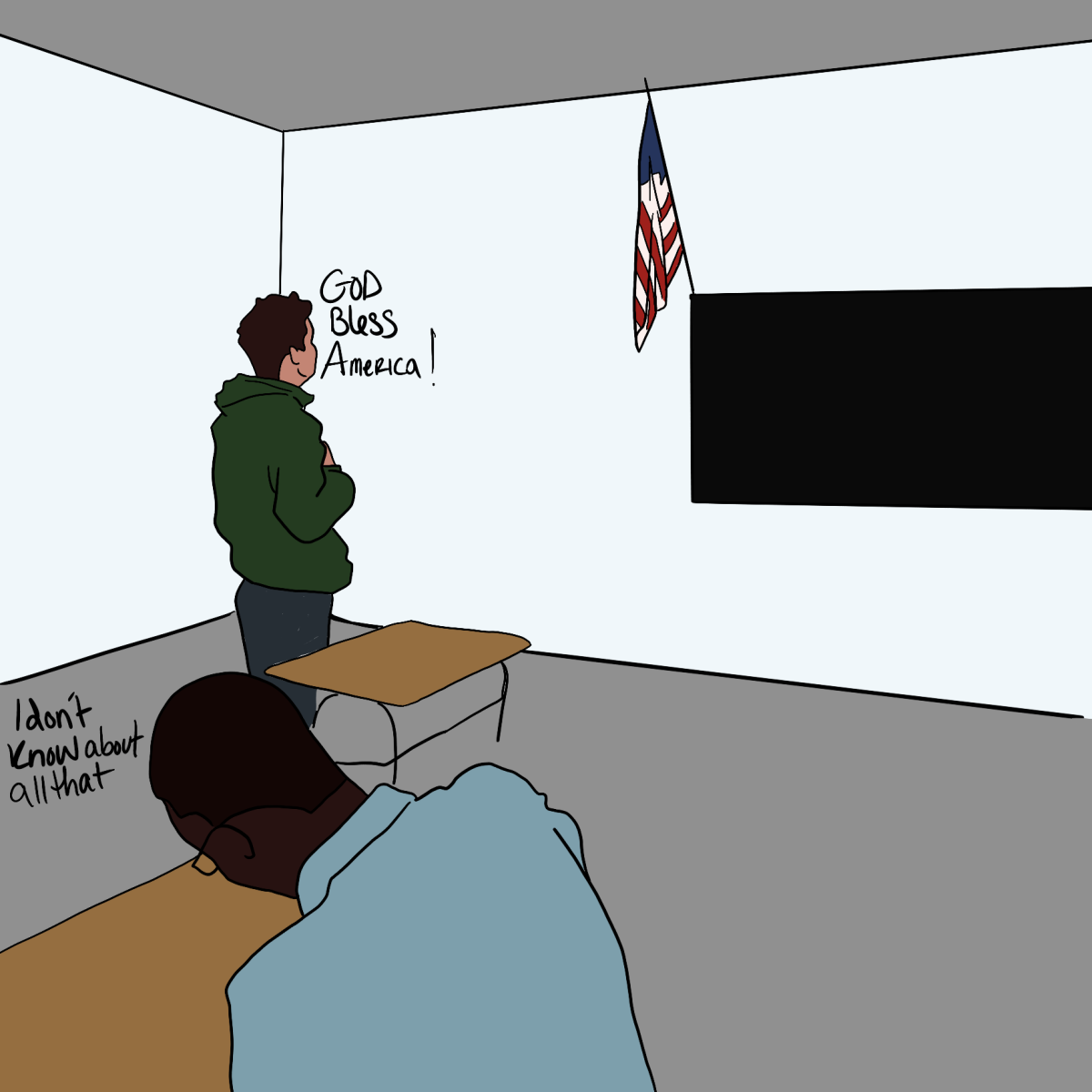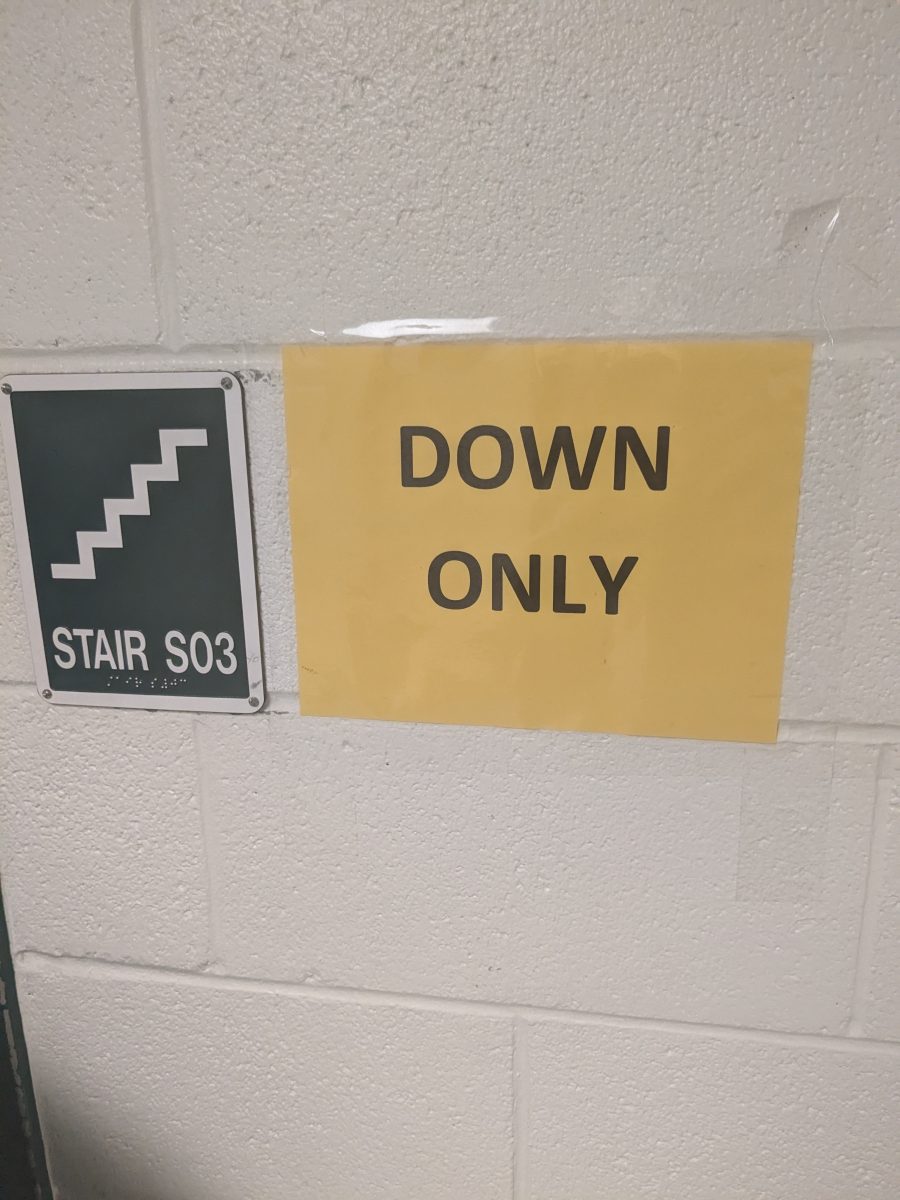
Point:
Audrey wakes up to the sound of her blaring alarm at 6:30 a.m. She had trouble falling asleep last night, and as a result she struggled getting out of bed. Every step she takes feels like an effort. When she finally gets to school, she tries her hardest to stay awake and attentive during her classes, but against her best efforts, she falls asleep halfway through her second class. This is the reality for the majority of high school students.
Later school start times for high school students would increase the amount of sleep students receive, which would provide extreme benefits for the health and performance of students. Sleep deprivation has extremely negative effects on students. In fact, the American Academy of Pediatrics published a policy statement in 2014 reviewing data surrounding sleep and changes in adolescent circadian rhythm and strongly recommended that middle and high schools should not begin before 8:30 a.m. Students who are sleep deprived are prone to falling asleep in class, which bars them from receiving necessary instruction. Students that don’t fall asleep are sleep deprived and will have a much harder time paying attention to and fully comprehending instruction. Sleep deprivation also has been linked to trouble with mood regulation, and can negatively affect students’ mental health.
Anne Arundel County has already approved a start-time change, beginning in 2022-2023. High school students will get an hour extra of sleep, while elementary school students will lose half an hour. Other counties across the country have also implemented these changes, and therefore it would be feasible for MCPS to do so as well. If MCPS were to implement a change similar to this, it would increase the amount of sleep high school students get, which would benefit students. Regularly getting enough sleep strengthens the immune system, reduces stress, improves mood, increases productivity, and can lower the risk of serious health problems.
Teenagers experience a different circadian rhythm than those of other ages. The time melatonin releases is altered, which means that teenagers end up falling asleep over two hours later than they did at younger ages. Due to this, high school students have a harder time waking up early in the morning, and generally lose sleep due to their natural sleep cycle. But this problem can be resolved by starting school at a later time.
The main negative impact of changing school start times is the impact it would have on the schedules of students and parents. These are valid concerns, as a switch as big as an hour or half an hour can be very impactful on schedules. But over time, parents have to alter their schedules anyway, as students progress through schooling. It would not be an easy switch at first, but eventually it will just become the same as now; it will seem normal. If school start times are changed, school end times will be altered as well. This will impact the amount of time high school students will have for after school activities. The support that later start times will provide for students massively outweighs the negative effects of losing an hour or so of activity time after school.
Audrey wakes up to the sound of her blaring alarm at 8 a.m. She had an amazing night’s sleep, and she feels refreshed. Once she gets to school, she stays awake through all of her classes, engaging more with the material than she had ever been able to before.
Counterpoint:
Imagine going to school around 9 a.m., spending most of the daylight hours at school working on schoolwork and by the time you leave it’s 4 p.m. and you’re exhausted. After school, you have to rush to your job where you work a six-hour shift. By the time your shift ends it’s late at night and you haven’t even started your homework. You also still have to take care of other personal responsibilities and somehow manage to get enough sleep, you might say to yourself, “There is not enough time in the day!”
This could become a reality for many students if school start times are pushed back an hour.
Students dedicate a large portion of themselves and their time into school, however, emphasis on portion. Students should not be spending all of their time on school. They have activities outside of school, whether they play a sport, have a job, volunteer or do something else, and starting school later would further interfere with their schedules. Students who participate in these activities usually meet for a few hours after school leaving them with little time to focus on their outside of school work including homework, assignments, studying for tests, SAT/ACT prep, college applications and so many other academic activities.
Let’s not forget about students’ personal and family life and the responsibilities that come with it. Students who have to take care of their younger siblings and family members would also be put at a disadvantage.
Many students are already overwhelmed with so many activities as is. It seems unreasonable to ask students to continue to take on so many activities in a day with less time.
An hour is a significant amount of time. Many students set aside an hour before they tend to any of their outside activities to use productively. Taking away this hour takes away a decent amount of time that students could use for working on something important.
An hour of sleep is also very significant and can be extremely beneficial for student health, however students might not even be getting an extra hour of sleep if everything is pushed back. If school is pushed back an hour or two, students’ activities will be pushed back as well and last further into the day and possibly night causing students to stay up later.
Additionally, an extra hour of sleep is not going to solve sleep deprivation in students. Currently, the majority of students aren’t getting the 8-10 hours of sleep that the Centers for Disease Control recommends that teenagers aged 13-18 years get. About 7 of 10 students don’t get enough sleep but pushing back school start times isn’t going to make the problem magically go away.
There is also no guarantee that starting school later would improve the sleep schedule of students. Starting school later doesn’t prevent students from procrastinating their assignments or using a device before bed that might mess up their sleep schedule.
Even though students would eventually get used to the amount of time that they have after school and could create a schedule that works for them, this still leaves the problems related to getting to school for students who have unreliable means of transportation to school.
Later start times might conflict with parents who have to drop their children off at school. Younger children currently start around 9 a.m. which already conflicts with a full time job, and parents who have longer or more traffic heavy commutes to work already drop their children off early. Starting later would make it more difficult for parents to take their kids to school and possibly make them late for work.
Although it is difficult for schools to create a system that works for everyone, students and possibly their families, are stressed as is and pushing back school hours will make it more difficult for students to balance school and outside activities. It also wouldn’t fix a lot of the problems they hope to solve.















